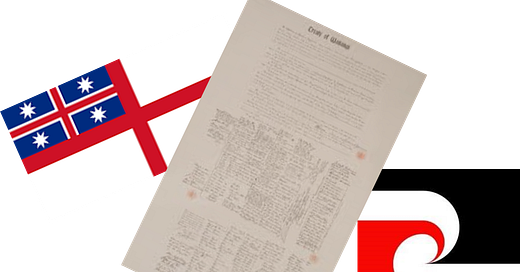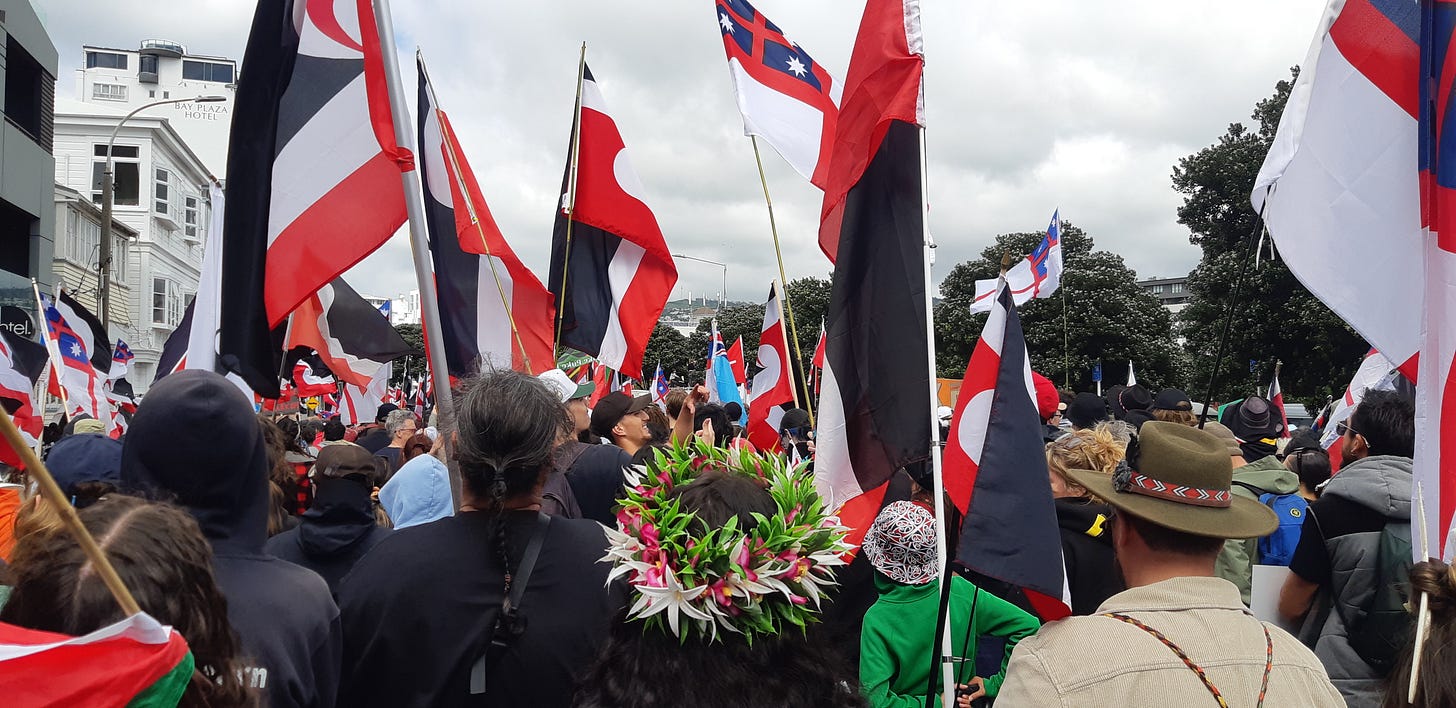This repulsive Bill
My submission to Bill that shows total disrespect for the mana of Te Tiriti
Māori have called for all to make submissions on this repulsive Bill.
I echo the call of Māori and especially encourage Tangata Tiriti to make submissions.
Now is the time for Tangata Tiriti to stand strong alongside Tangata Whenua.
Submissions need to sent by 07 January 2025, and further details can be found here.
Submissions need not be lengthy, nor be subsumed with formalities or legal minutiae. A simple, first-hand, statement of what Te Tiriti means to you and that this Bill is a red line that must not be crossed is sufficient.
My submission to the Justice Committee on the Principles of the Treaty of Waitangi Bill is reprinted below.
This submission is from Dr Ganesh Rajaram Ahirao (aka Dr Ganesh Nana).
I have a PhD in economics from Victoria University of Wellington Te Herenga Waka.
I have more than 40 years of experience and accumulated knowledge with a professional career in economics that has included academia, consulting, and public service.
More recently, I was Chair of the Independent Crown Entity the Productivity Commission Te Kōmihana Whai Hua o Aotearoa from February 2021 until its disestablishment in February 2024.
Submission
I oppose, in the strongest possible manner, the Principles of the Treaty of Waitangi Bill and its intent.
During my schooling years (1965-1977) the Treaty of Waitangi was rarely mentioned or considered. When it was referenced, the Treaty was portrayed as a generous 'gift' that the Crown ‘gave’ to Māori. I now understand the reality was the reverse. But I, along with most of my generation, was also encouraged to grow up ignorant of such knowledge.
The implication was that the Treaty was of no relevance or significance to life in New Zealand. On reflection, it seemed that as a nation we had progressed little from the days when the Treaty was considered “a simple nullity”[1]. Despite the 1974 instigation of a public holiday on 06 February, my formal schooling education left me with little knowledge of the Treaty – and even less of Te Tiriti.
In what I can only call a total disregard and disrespect for the status and mana of Te Tiriti, the Crown also encouraged my generation to remain ignorant of the existence of Te Tiriti, and of the critical differences between that document and the Treaty. Nor was He Whakaputanga acknowledged, given its significance to the question of governance and sovereignty over the country.
However, without doubt, these examples of disregard and disrespect pale into significance compared to the many transgressions and injustices exercised by the Crown over the years since the signing of Te Tiriti, as the Crown rode roughshod over its obligations and responsibilities to its Te Tiriti partner.
The Bill being considered by this Committee is yet another disingenuous act of total disregard and disrespect for the status and mana of Te Tiriti o Waitangi.
Statement
Te Tiriti o Waitangi is the document that has supported Aotearoa to be the Pacific nation that it is today. Te Tiriti enabled my parents to come to this country many decades ago, allowing them to settle and aspire to a better life for their children. I am deeply indebted to Te Tiriti that, in turn, is enabling me to remain in this country and to continue to enjoy a better life for myself and future generations.
Migrants who have come to this country many decades – or years, or just months – ago, alongside their families and whānau (many of whom, myself included, have been born in Aotearoa) are the very embodiment of Tangata Tiriti.
And we all collectively owe a debt of gratitude to those who proposed, drafted, and signed Te Tiriti, embracing the development of a nation of many peoples.
Hīkoi mō Te Tiriti was an open celebration of that nation and a clear statement of the positive futures seen by the people of this nation under the protective cloak of Te Tiriti o Waitangi.
Toitū te mana o te whenua. Toitū te Reo. Toitū Te Tiriti o Waitangi.
Recommendations
That this Bill be immediately, without any delay, reported back to the House recommending
that this Bill not proceed
that the House recognises it has neither the mandate nor the standing nor the mana to alter Te Tiriti o Waitangi – its meaning, interpretation, or application – without first engaging with Māori
that the House extends a formal apology to Māori in allowing such a travesty of a Bill to be introduced and for the harm weathered by Māori during its stages of consideration
that the House encourages the Crown to undertake immediate and open reconciliation efforts to repair and restore a positive relationship between Crown and Māori
that, as initial steps in such efforts
the House confirms Te Tiriti o Waitangi and He Whakaputanga as the founding documents of Aotearoa
the House acknowledges that in neither Te Tiriti o Waitangi, nor in He Whakaputanga, did Māori cede, relinquish, surrender, or give up – either explicitly or implicitly – their sovereignty to any bodies or peoples.
[1] Chief Justice Sir James Prendergast, October 1877.






